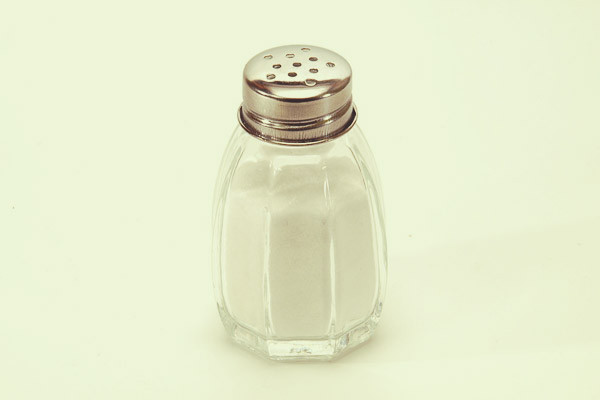Excess salt intake harmful to organs and blood vessels

Consuming too much salt can harm many organs and blood vessels, says a study co-authored by University of Delaware and Christiana Care Health System.
Even in the absence of an increase in blood pressure, excess dietary sodium can adversely affect blood vessels, heart, kidneys and brain.
The study found adverse effects even for people who are salt resistant.
Sodium is essential for fluid balance and a stable internal environment in an organism. But the amount of salt needed for this is only about 500mg per day.
In contrast, most Americans consume more than six times that much, which leads to high blood pressure in many people.
The review paper is to be published in the 17 March issue of the Journal Of The American College Of Cardiology.
Potential effects on the arteries include reduced function of the endothelium, the inner lining of blood vessels. Endothelial cells are crucial in mediating coagulation, platelet adhesion and immune function.
Elevated dietary sodium can also increase arterial stiffness.
Earlier work done by the authors in this area had shown that excess salt intake in humans impair endothelium-dependent dilation and microvascular function. In both cases, the effects are independent of changes in blood pressure.
"High dietary sodium can also lead to left ventricular hypertrophy, or enlargement of the muscle tissue that makes up the wall of the heart's main pumping chamber," David Edwards from UD's Department of Kinesiology and Applied Physiology says. "As the walls of the chamber grow thicker, they become less compliant and eventually are unable to pump as forcefully as a healthy heart."
High sodium is also associated with reduced renal function, accompanying minimal increase in blood pressure.
Excess salt may also affect the sympathetic nervous system that controls the fight-or-flight response of the body to react in an exaggerated way.
Recommended dose
The American Heart Association recommends daily consumption of less than 1,500mg (1.5g) of sodium.
National guidelines in both the UK and the US recommend that adults eat no more than 6g of salt (or 2.4g of sodium) per day.
Current intake of salt in the UK is 8.6g. A survey found that almost every adult on the planet consumes too much salt, with an average of 3.95g of sodium consumed per person per day - nearly double the World Health Organisation's recommendation of 2.0g.
"Approximately 70 percent of the sodium in our diets comes from processed foods, including items that we don't typically think of as salty such as breads and cereals," says William Weintraub, chief of cardiology at Christiana Care whose work focuses on cardiology outcomes.
"Also, restaurant food typically contains more salt than dishes prepared at home, so eating out less can help reduce salt intake, especially if herbs and spices — instead of salt — are used to add flavor to home-cooked meals."
A recent US study looking at 10-year death rates in elders based on salt intake found no significant difference between people who consumed less than 1.5g of sodium a day, or 1.5g-2g of sodium a day or even over 2.3g of sodium.
An earlier McMaster University research found elevated risk of heart attack associated with average daily sodium intake less than three grams.
A Tufts University study covering populations across 187 countries found excess salt intake is responsible for one in 10 deaths worldwide from various cardiovascular causes.
© Copyright IBTimes 2025. All rights reserved.





















